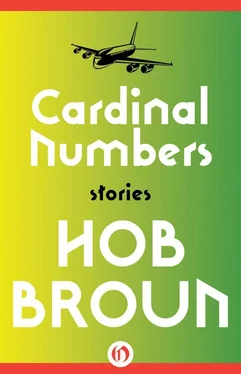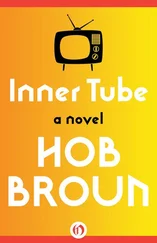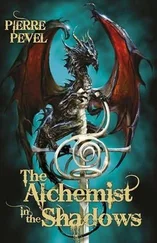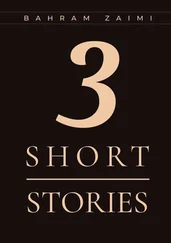The bellhop’s little finger, which had lost its top joint, first touched the side of his nose, then traced his eyebrows.
“Clochard,” he said. “Walking backwards around the world.”
Brick had no choice. He dined under the sodium lamps of a roadside park that memorialized the Colorist Uprising of 1968. The cold forests around him were thick with fir and spruce. Raccoon dogs called to one another. He ate a bologna-and-sweet-relish sandwich. He tried to make a nest on the slippery back seat of the car, and everything came apart. Sleep came hard; it was like the finish line of a forced march. He shivered and twitched with a dream that went something like this:
Moving through a suite of apartments in a rose-pink building at the corner of Wilshire and Western. Eating jellied consommé at a glass table, taking Russian cigarettes from a Chinese box. Chrome accents. White bisque bas-relief Pegasus over the fireplace. Parrot climbing drapes. Santa Anita results on radio KNBC interrupted for bulletin flash. “Rex missing! Posse formed! Search dunes!”
Brick’s descent from the mountains was one long afternoon of switchbacks. A light rain fell. The pastures were empty. Gasoline was unavailable in village after village, but wine was everywhere. Fog lay in the valley. Pennants dangled over the roadblock and militiamen in silver shirts searched every car for booty from last night’s tomb rifling. They pried up mirrors and slashed water bags.
Now Brick recognized all plot elements as lab work, a run of testing obstacles, captive panels clocked and rasping with the stylus over an unspooling graph paper band. Fine, then. Over we go.
And there were promising dust clouds. Slag heaps and cactus signaled the final push. He mopped himself with a blue shirt, tied it over his head; and then, ominously, he ceased to sweat. Fear preceded caution: character was fate. He rolled the windows up as he neared the city. Men in white djellabas lined the road, and they were not too proud to beg.
The Hotel Empire lobby smelled of beeswax and mice. Bullet-riddled furniture had been pushed all into one corner. The hollow columns were wrapped in gold foil. Brick had no trouble locating his man, nibbling salt plums at a glass table beside the pool, sunlight glinting on his hair.
“Glad you could make it,” Rex Morgan said.
“I guess I’m what you’d call kind of a stooge.”
“You were allowed to find me. Not encouraged, not coerced.”
“Fine. Just fine. How much luck does that use up?”
“I’m a doctor. I can give you new prints, a different face.”
“What good would that do?”
Brick saw that his next line would be, “Where is the ethical component?” But he was able to stop himself. Suppose his words were like antibodies: formed in the past as specific response, then stored for use? He could learn to dissolve them.
“Our too shabby flesh, hmm?” Morgan said, pulling Brick’s hand to his throat to feel the driving blood.
Dusk had already happened. Day, having moulted like an insect, exuded a fresh night. Children crouched inside the sandstone wall to pee. Voices out of the lemon grove turned bitter. A salesmen of very first-rate Irish tweed inquired at the desk about licensing. Glasses of sweet mint tea were brought to the table. Morgan tilted in his chair to drink. His cheeks were rouged, his pupils unusually large.
“Is this too scenic?” he asked. “Just say the word.”
“I have an awareness problem. It makes me a little jumpy.”
“I’m a doctor. I can take care of that too.”
“Drugs? A regimen?”
“I know, I know. That’s no way to solve it.” Morgan clenched his teeth, batted at a wasp, edged forward. He sighed. “Just look around you. It’s everything that’s wrong with development policy.”
“A man, a plan, a canal, Panama.” Brick’s antibodies were hooked in and he could not interrupt the process. “Scenic, romantic, historic. Resources alarming in their potential, and the keystone for a vital future. Am I talking too much? Just say the word.”
“You need to go up and rest,” Morgan said palliatively. “The fighting won’t begin for hours.”
Fresh smell of citrus. Face of travel clock averted. Wallpaper with a repeating figure of minarets. More than a presence, dismay. Recognizable. As yellow fat taste in mouth. As harsh feel of sheets on skin. Possible tampering with chemistry? Question Rex, but he won’t answer anymore. Room completely dark now. From here cannot quite see over wall. Impossible.
The moon was high, half full. Goats foraged in the empty riverbed. Scooters buzzed and wives bargained for rolls of toilet paper. A prerecorded muezzin’s call was inadvertently set off. Tires burned in the street beside the monogrammed car.
[6]
SOME GUESTS ON THE porch had just returned from a hike to the falls. They were loud. Rosella, crouching, studied them from inside the hemlock hedge. One fancy lady had little moss bits on her shoes.
“What swells the heart is timelessness.”
“I must disagree. Rather, it is purity in the here and now.”
This city man wore clothes like a farmer would, and went out every morning to draw. Rosella had followed him to Ship Rock and seen him pee over the edge. And then right away after, Mama looked at her outside the kitchen, said, “Have you been eating pitch again, Rosella?” and smacked her hard.
Mama didn’t like so many guests this time of year, and having to cook for them all because Minnie was away with hectic fever. The foreign people wanted trout for breakfast every day. Which Poppa said meant they weren’t Jews, at least.
Getting out of the hedge meant torn stockings, so Rosella went in the barn to take them off. It was nice to kiss the horse. He gave back warm air out of big nostril holes and pushed with his head. Rosella buried her stockings and shoes in the oat bin. She would say a man from the woods had robbed her.
They were still loud on the porch. About the President’s doctors in Buffalo saying he ought to pull through.
“No reason for a one of these anarchists to be on the loose.”
“But how to discover each one? They are the most devious people.”
“Czolgosz? Anyone with two z’s in his name, lock him up.”
Rosella picked up an interesting stone.
[19]
The cylinder slowed on the Edison machine, and Rosella turned the handle so they might hear the rest of “Jitney Elopement” at its proper speed. Caroline halved the distance between them on the divan and proffered on her snow-white hand a nugget of crystallized ginger.
“I am quite sure,” said she, “that I have never had a more enjoyable Christmas.”
All the guests but her had retired. Beech logs popped and settled in the fireplace.
Caroline looked searchingly at Rosella. “And I hope it is not out of my place to say how glad I am that what between us began as an agreeable acquaintance has, in these few days, grown into a warm, close friendship.”
The song had ended, but Rosella, in flushed perplexity, did not lift the needle.
“It seems so sad to me that circumstances by morning must force us apart.” Caroline’s green eyes glistened in the flickering light. “Might I beg you now for one goodbye kiss as a token?”
Rosella stiffened when the tip of Caroline’s tongue grazed her lips. She smelled ginger and melting wax.
“Oh, my darling,” Caroline wailed, pulling desperately at the fastenings of her bodice. “I would face eternity for you.”
[32]
After Sunday Mass they left the girls with Otto’s mother and drove on out to where the hotel had been. It was a cool day, but clear, and the leaves were still green. They teased and held hands in the car until the road curled away from the water and steepened.
Читать дальше












